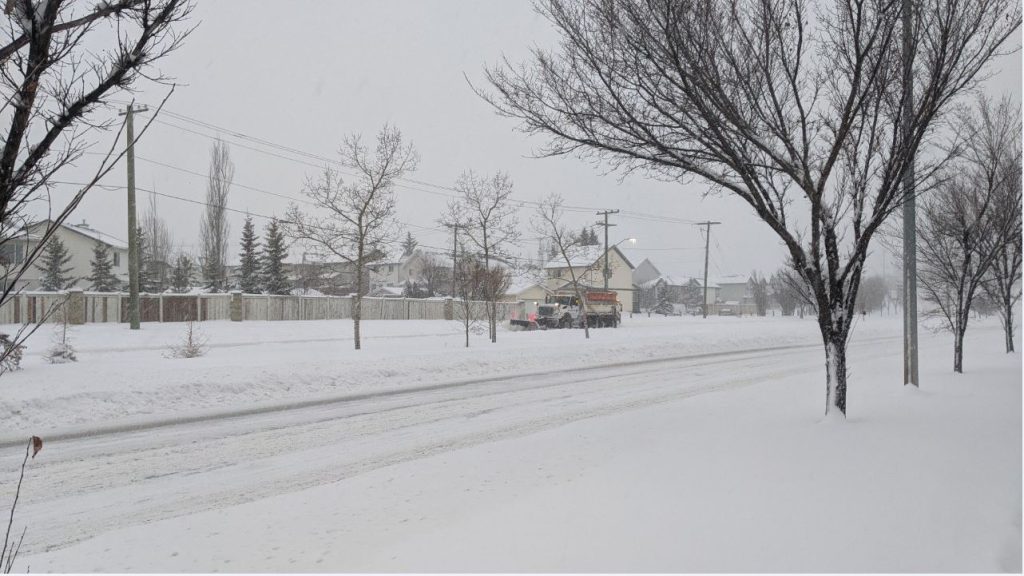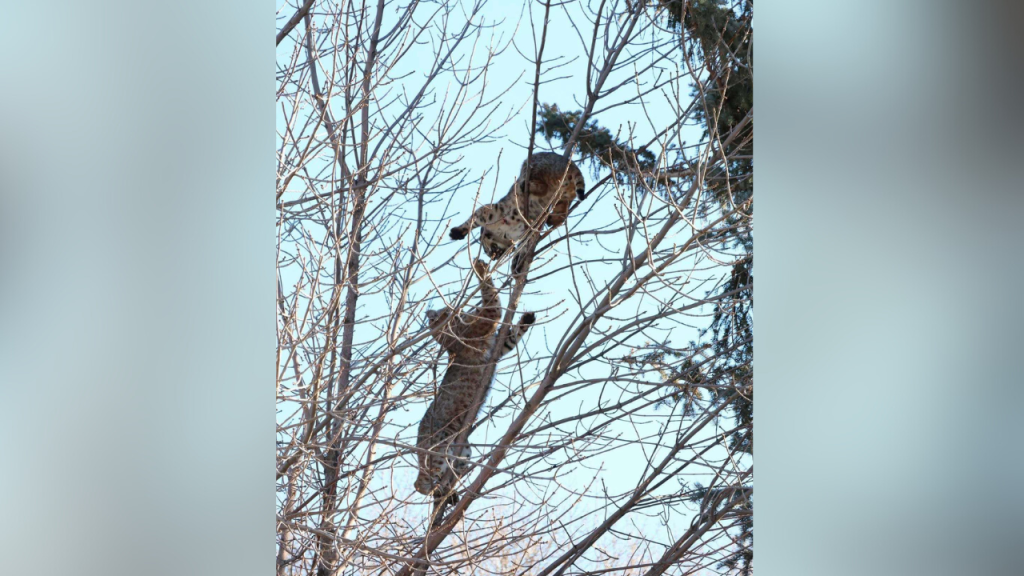Extreme cold warning issued for Calgary, airport sees delays and cancellations

Posted Dec 19, 2022 10:39 am.
Last Updated Dec 19, 2022 3:27 pm.
With Calgary having an extreme cold warning put in place by Environment and Climate Change Canada Monday, the Calgary International Airport has seen multiple delays and cancellations.
According to data from the weather agency, the city is seeing a temperature of -28 C and -43 C with windchill in the morning.
The cold is expected to continue throughout the week, “especially overnight and early morning hours.”
With flights at the airport seeing delays and cancellations due to the extreme cold, many of those are coming from WestJet and Air Canada.
“YYC is seeing delays due to weather events like snow and low visibility affecting several airports, as well as extreme cold in Calgary. Guests may experience delays for a variety of reasons, such as passenger volume, staffing, maintenance, or connections from other airports,” said a statement from the Calgary Airport Authority (CAA).
“We are monitoring the situation and continue to work with all our partners – from airlines, airports, security screeners to border agents and government officials – so we can jointly deliver a smooth, efficient experience for travellers.”
The CAA also says that 50,000 people pass through the terminals daily during the holidays, and people should prepare for potential delays by arriving early and checking with their airlines before departing.
In a statement from WestJet, the airline confirmed that 57 flights throughout its network have been cancelled as of 11 a.m. Monday, while around 104 were cancelled on Sunday.
“We sincerely apologize to our guests who have been impacted by multiple cancellations and delays over the past 24 hours as a result of severe winter weather impacting our operations across Western Canada. We understand the frustration and disappointment this has caused, and our teams are working to reaccommodate guests as quickly as possible,” said a spokesperson with WestJet.
“The ongoing extreme cold weather warnings impacting Alberta and prolonged forecasted snow and weather events for regions across B.C. including, Vancouver Island, the Lower Mainland, as well as the Okanagan region, continue to prove challenging as we work to stabilize our operations and ensure the safety of our crews.”
WestJet says that recommendations and options have been made to impacted travellers “as soon as they are available.”
Related Stories:
-
Alberta braces for extreme cold this week
-
Calgary airport expecting over 1M guests for holidays, offers tips
Ways to stay safe and warm in cold snap
The weather agency predicts the frigid conditions are expected to last for much of the week.
Public education officer with EMS Naomi Nania recommends people stay indoors at all times, including those most affected, like young children and the elderly.
“If you’re outside for long periods of time, this is when frostbite can occur. And then also, more serious, hypothermia can occur if you’re outside for longer than a few minutes at a time when the weather is like this,” Nania said.
“Luckily, there haven’t been a lot of cold weather-related emergencies. There have been a few. But there have been more trips and falls outside as well as some motor vehicle collisions just because of the weather.”
Nania recommends finding out your walking and driving routes before departing, and if you have to go out walking, wear proper footwear. The elderly or those with balance issues should “walk like a penguin,” and she also says to be a good citizen to those with balance issues.
“Give them an extra hand if you can, being a good Calgary and shovelling some sidewalks for a neighbour,” Nania said.
In the last 24 hours, EMS has reported around 12 cold-related emergencies, but none of them were life-threatening.
If frostbite is felt, it’s recommended to get out of the environment, to rewarm the person, and to use warm water over hot water.
“If you do start feeling that tingling, that redness of your skin — of any exposed skin, to come inside immediately and start rewarming that so that it doesn’t lead to frostbite,” Nania said.
Natalie Hasell with Environment and Climate Change Canada echoes these statements and has a few more to add.
“Everyone is affected by the cold. There no person or no area that is so robust that they won’t be affected by extreme cold,” Hassell said.
“We’ve also seen situations where the cold can lead to things like shortness of breath, chest pain, muscle pain, weakness that sounds a lot like cardiac arrest, [and] it probably is cardiac arrest.”
She recommends people pack emergency kits in their cars, and with holiday events happening at this time, not to let anyone walk home and to offer a car ride instead.
“We issue the extreme cold warning not to tell you it’s cold, you can figure that out for yourself pretty quickly, I think. But to tell you that there are precautions that people should be taking in this weather,” Hassell said.
The province is also warning those that work outside to take shelter and to look out for signs of frostbite.
Temperatures are set to drop this week. If you'll be working outdoors, know the signs of cold stress.
Take shelter immediately if you see signs of frostbite, have extreme shivering or feel like you’re losing coordination. Learn more at https://t.co/u5ZfKyD4oK pic.twitter.com/YwcedMl4hs
— Alberta Government (@YourAlberta) December 19, 2022
The weather is expected to rise by the end of the week, with Saturday rising to 2 C.
The coldest temperature on record for this day is -33 C in 1921, while the warmest was 17 C in 1954.
-With files from Tiffany Goodwein and Taylor Braat








